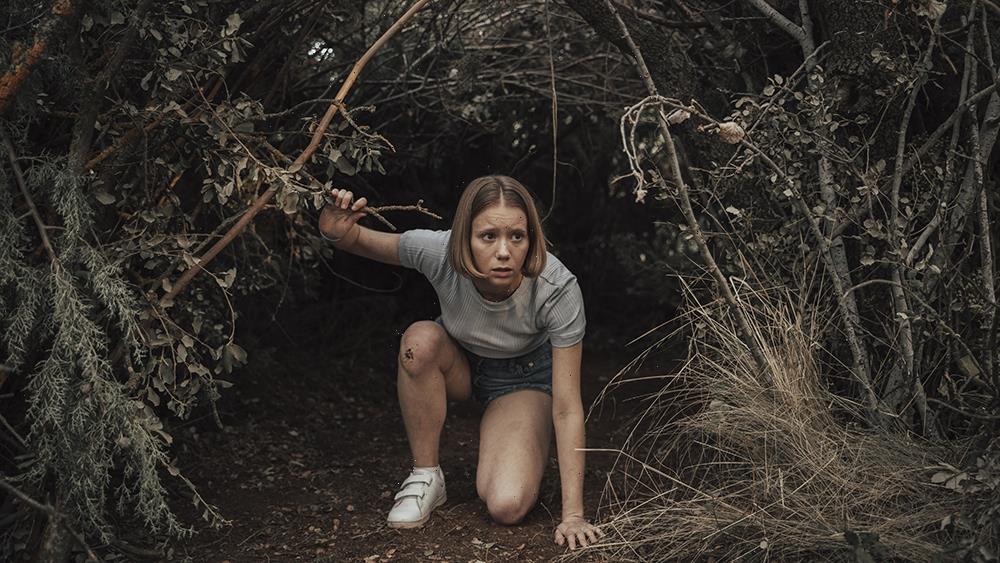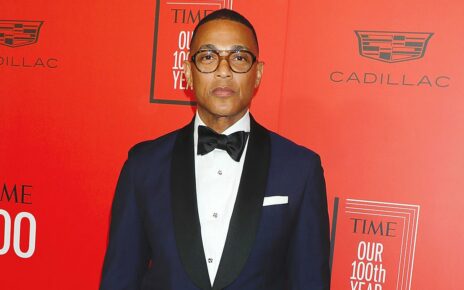“Girl, Unknown,” the sophomore feature from Spanish director Pablo Maqueda (“Dear Werner”), currently ranks as one of the early buzz titles at the Málaga Film Festival, even before its world premiere.
The film adapts Paco Bezerra’s stage play “Grooming.” Maqueda, Bezerra and Haizea G. Viana wrote the script, which retains the play’s unsettling cat-and-mouse element. It delves into the recesses of desire, raising questions on depravity, sexuality, and the drive to be fulfilled. The story unfolds a pendulum swinging power dynamic between the seemingly innocent 16 year old Carolina, and a middle aged man she meets in a park named Leo. What begins and is a case of grooming morphs into something far more complex due to Carolina not being all she seems. Maqueda shows a Hanekesque talent in balancing the disturbing with the thrilling. On the film, Maqueda told Variety: “I feel the film as a kaleidoscope and the characters as masks. I like stories that navigate in the daily terror of everyday life,”
The film stars Laia Manzanares (“The Realm”) as Carolina, with Manolo Solo, winner of a Goya Award for best supporting actor on Raúl Arévalo’s “The Fury of a Patient Man,” as Leo. In support, as Leo’s wife, is Eva Llorach, winner of the best women’s breakthrough Goya for Carlos Vermut “Quién te cantará.”
“Girl Unknown” hits Malaga having earned as a project a prize at the 2019 Abycine Lanza Audiovisual Market for Independent Film, part of Albacete’s Abycine Film Festival.
The thriller is sold by Filmax and was backed by Spain’s ICAA Film Institute, Madrid’s Regional Government and Town Hall and Castilla La Mancha’s Impulsa Foundation, with the participation of regional broadcasters Telemadrid and Castilla La Mancha Media TV.
Michael Haneke is a filmmaker who manages to provoke and enthrall audiences with unsettling themes. How did you approach balancing the subject matter while maintaining the thriller aspect to the story?
Haneke’s cinema is a clear reference in my way of understanding not only the thriller but also the cinematographic mise-en-scène. I was very clear that I wanted a naturalistic context for the film because I have always thought that the real horror is in the everyday. So I worked with the photography of Santiago Racaj and the editing of Marta Velasco, who are professionals linked to deep dramas and not to thrillers. But I was also very clear that I didn’t want to forget the fable that surrounds the story and there the tale of Alice in Wonderland was key and the kind of suspense of Alfred Hitchcock’s films was also important for the context of the story and the construction of the characters. Hence, for example, the use of music and voice-over at very specific moments. I feel the film as a kaleidoscope and the characters as masks. I like stories that navigate in the daily terror of everyday life.
The film is based on a play: How was the process of transitioning the staged story to a cinematic one?
I wanted to start from the play to make a film, and the three of us agreed on that. The play was perfect, so our challenge was to make a film that lived up to it. There were very funny moments with Paco when he proposed something to me and I said “too theatrical” because they are very different languages. For me as a director, the biggest challenge was to make something new out of an initial material that I admired and respected. It was also a challenge because you don’t have the same dialogue in theatre as in film, but at the same time we had to maintain the essence. In this process, the final phase was key, when we started rehearsing with Manolo and Laia.
It takes excellent and trusting actors to agree to parts such as these. Was it an easy process casting your leads for the film?
We saw more than 100 actresses for a year and I got very involved because the character of Carolina is very complex and requires very specific characteristics, both physical and psychological. I also wanted someone who was not particularly recognizable to the audience and Laia was perfect for the role and she was willing to delve into the character, to let herself go. In the case of Manolo Solo, he is a reputed and award-winning actor who has never had a leading role. I was looking for someone who already had a name, but who at the same time was the ordinary man, the man in the street.
The film raises challenging questions on abnormal sexual desire. Do you think there needs to be more dialogue on how society best manages the fact they exist?
I don’t know if there should be more dialogue, but without spoiling too much, the plot is about two people who meet, by accident or intention, in their imperfections or their secrets. That’s what I liked about Laia’s character, that in the end we also discover that she is a character who has her own secret, a character who seems pure but suddenly we discover another layer. I feel that in recent years we only want to consume art, be it cinema, theatre, literature,… that gives us reason, that reaffirms our convictions and I think that one of the purest forces of art is just that it challenges you, that it is opposite, that it makes you think. It wasn’t the reason for making the film, but I do think it’s interesting that there is the question of whether there is art that is censurable, if we should set limits on art or if we should work on educating people so that they learn to understand art as something that belongs to another dimension. I think this is a debate that is being lost, because I think we are bowing to the censorship of others, limiting the kind of stories we tell or consume. What matters to me, as a film lover, is the quality of the film. I don’t value its subject matter so much, but there are people who do, and if a film suddenly goes against their moral convictions they don’t like it, even if the film is good. I’m interested in the human being in all their complexity and I understand that when you dive into the human being, good things are not always going to come out. I’m not talking about extreme things, simply that the characters lie, that the characters do immoral things, that the characters are imperfect.
Were there any key influences or references that helped you and your crew maintain the style you wanted during production?
For me it was very important to create a story and characters that would not leave you indifferent and that, even if you wanted to, you could not look away. This is not a film that poses a comfortable journey to the viewer as the cinema of so many filmmakers that I admire Julia Ducornau, Yorgos Lanthimos, Michael Haneke or David Lynch. I was told a phrase a few weeks ago which I love: “It makes you feel guilty for being entertained.” I really like films that don’t make it easy for me, that challenge me, that raise more questions than answers. As a moviegoer I have always gone to the cinema to find the truth, the answer, but it has also posed me questions whose answers I have found in myself.
Read More About:
Source: Read Full Article



